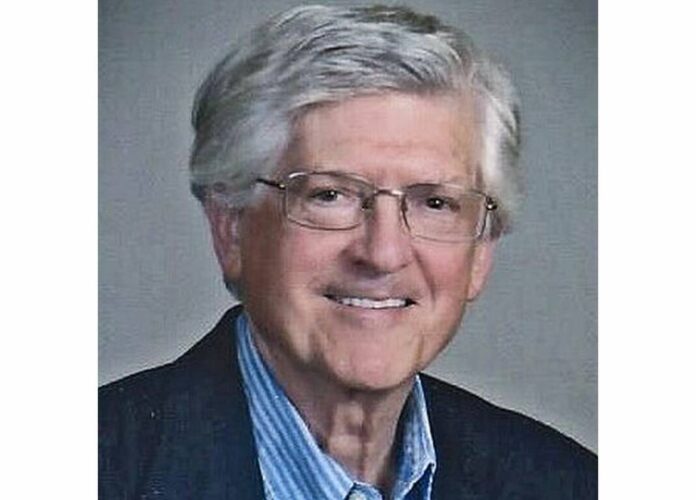“There is a mysterious cycle in human events. To some generations much is given. Of other generations much is expected. This generation of Americans has a rendezvous with destiny.” So spoke Franklin D. Roosevelt in his acceptance speech before the 1936 Democratic Convention.
Three years later, Harvard historian Arthur Schlesinger, Sr. proposed a cyclical theory of American history, arguing that our political and social history alternated between periods of liberalism and conservatism, or what his Harvard historian son sometimes termed periods of public purpose and private interest.
Liberal periods focus on human rights and increasing democracy, whereas conservative periods stress private interest, property rights and containing democracy. A conservative and liberal swing (bursts of reform followed by a period of retrenchment) together lasts approximately 30 years. For example, the Progressive Era (1901-1919) was followed by Republican Restoration (1919-1932); a conservative Postwar Era (1947-1962) was followed by Civil Rights, 1960s Era (1962-1978).
Cycles usually overlap, meaning that the numbers do not add up neatly. Too heavy a stress on cycles may obscure that what is at work is less a pendulum than a spiral. For example, rather than disappearing, progressive policies such as Social Security and the Affordable Care Act live on into future cycles.
Whatever the merits of cyclical theory, we are in a new era in which Democratic norms are eroding. First, the cruel, brutal rhetoric. This summer, Kari Lake, defeated in Arizona’s governor race last year, warned a Georgia political audience that “if you want to get to President Trump, you’re going to have to go through me and 75 million Americans just like me.” And remember: “Most of us are card-carrying members of the NRA.”
Marjorie Taylor Greene, the US congressional firebrand from Georgia who has suggested that extensive California fires may have been caused by “lasers or blue beams of light” shot down from space on behalf of the solar energy industry, released a video saying that Speaker Nancy Pelosi is “a traitor to our country, she’s guilty of treason…. And it’s, uh, it’s a crime punishable by death is what treason is. Nany Pelosi is guilty of treason.” She liked the Facebook post calling for “a bullet to [Pelosi’s] head.” Cultural commentator David Brooks calls her, along with MAGA Squad members Matt Gaetz and Lauren Boebert, “nihilistic performative artists.” They prefer performative gestures, not legislative achievements.
The assault on democracy escalates by magnitudes when rhetoric is joined by action. The most ominous case of democratic erosion, of course, is the Big Lie that the 2020 presidential election was stolen. Against dozens of opinions by the conservative U.S. Supreme Court, against the evidence of state recounts and thorough reviews, against the testimony from former President Trump’s insiders, against the testimony of Georgia Secretary of State Brad Raffensperger that Trump had called him after the 2020 election (on a tape we’ve all seen) asking that he “find” enough votes to carry the state for him, the drumbeat goes on.
Nevertheless, the lie of the Big Steal rings true to millions of Americans. As recently as late August, a poll conducted by The Associated Press-NORC Center for Public Affairs (an objective, non-partisan research institution) suggests that nearly 60 percent of Republicans believe that President Joe Biden was illegitimately elected as president. Earlier this year an Economist and YouGov survey revealed that at least a quarter of Republicans continue to approve the January 6, 2021, riot inside the US Capitol to overturn the 2020 election.
Attacks on our nation’s democracy have reached such a level of concern that earlier this month thirteen U.S. presidential centers have issued a joint bipartisan statement calling upon Americans to recommit to democratic principles and the rule of law. Never before had the centers, dating back to Herbert Hoover and including those of John F. Kennedy, Ronald Reagan, and George W. Bush, felt it necessary to urge Americans to respect the pillars of democracy and value “the importance of compassion, tolerance, pluralism, and respect for others.”
We humans are the most remarkable beings on earth, exhibiting gifts of invention, science and artistry. We’ve built civilizations that thrive and free us from many bonds of nature, but real dangers to the democratic form of government have been growing, and are even feverish among a minority group of U.S. congresspersons. By their actions, it appears that many no longer believe it to be the preferred method of governing.
We are entering a new era of history in which the traditional political cycles may no longer apply. Sophisticated technologies, artificial intelligence (which continually studies us) and algorithms are shaping our thinking – and at great speed. But for millennia our minds have not evolved. The danger for partisans of democracy is that in addition to the foregoing, with extensive gerrymandering and the existence of the Electoral College, we have been moving toward a counter-majoritarian democracy.
Ron Lora, a native of Bluffton, is professor emeritus of history at the University of Toledo. Contact him at [email protected]. His column does not necessarily reflect the opinion of The Lima News editorial board or AIM Media, owner of the newspaper.







